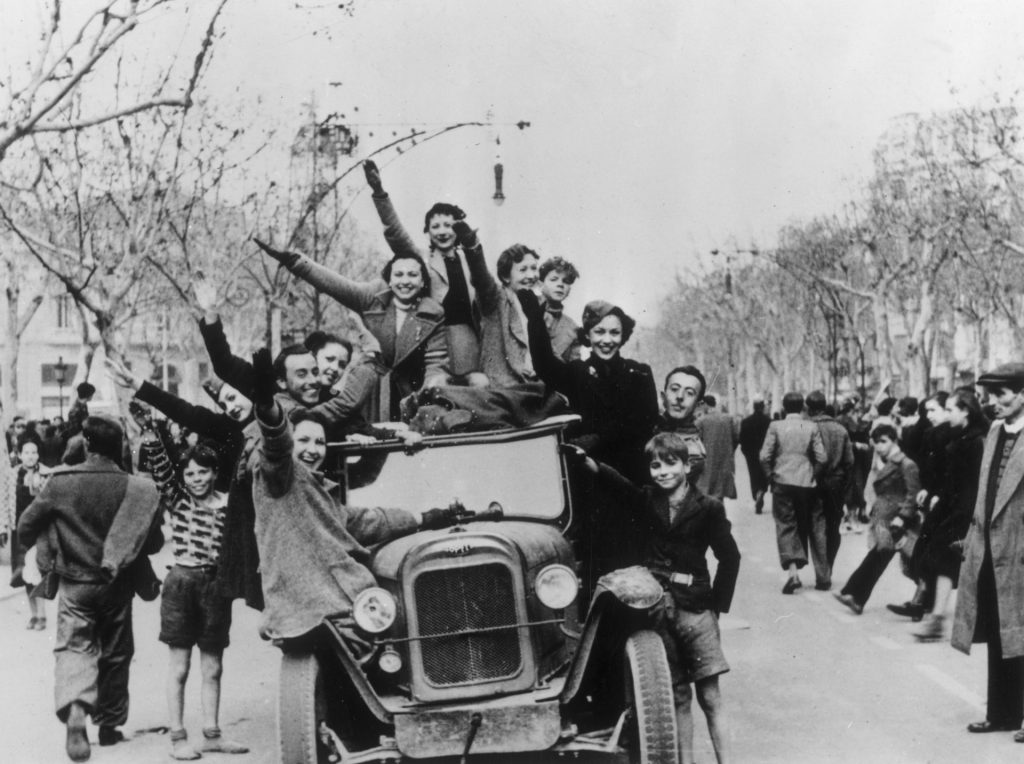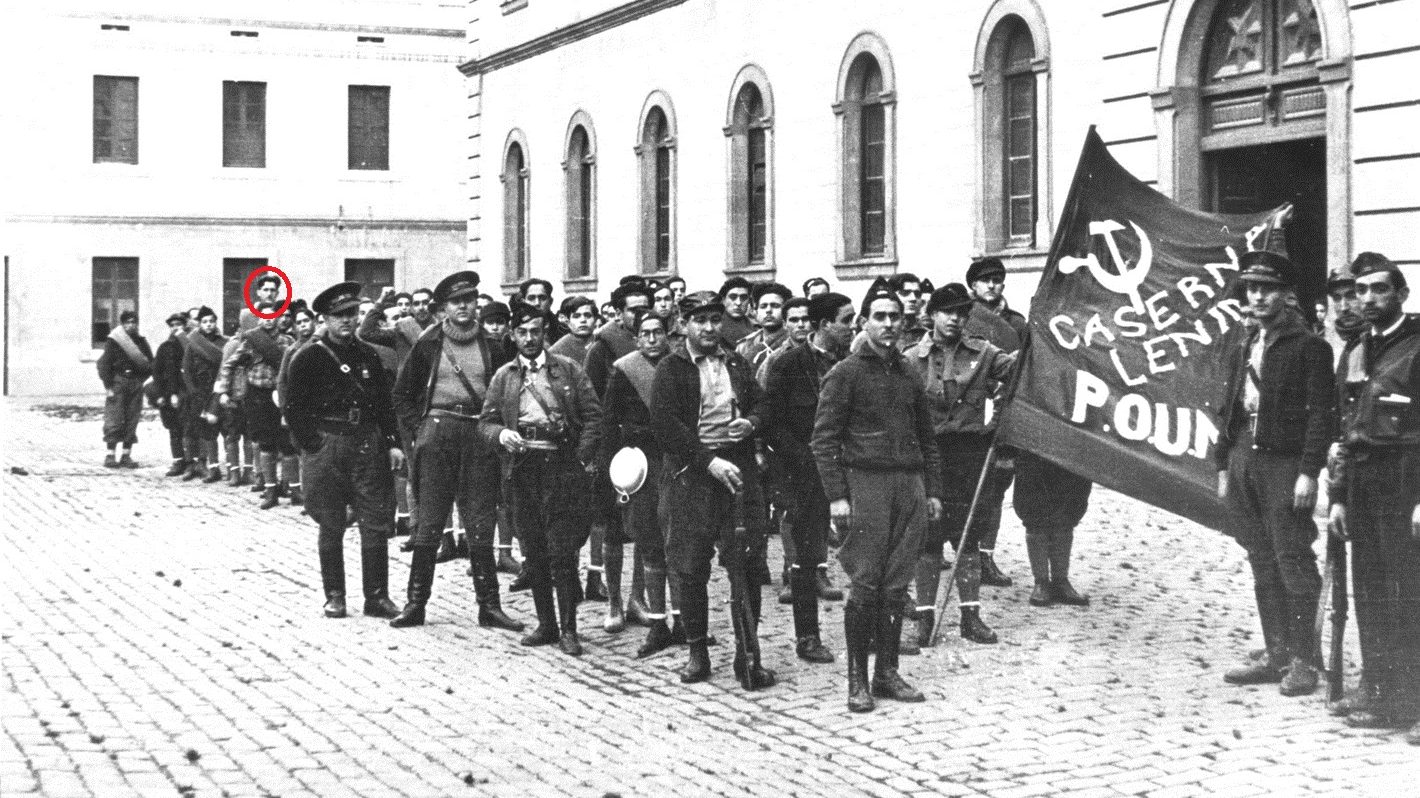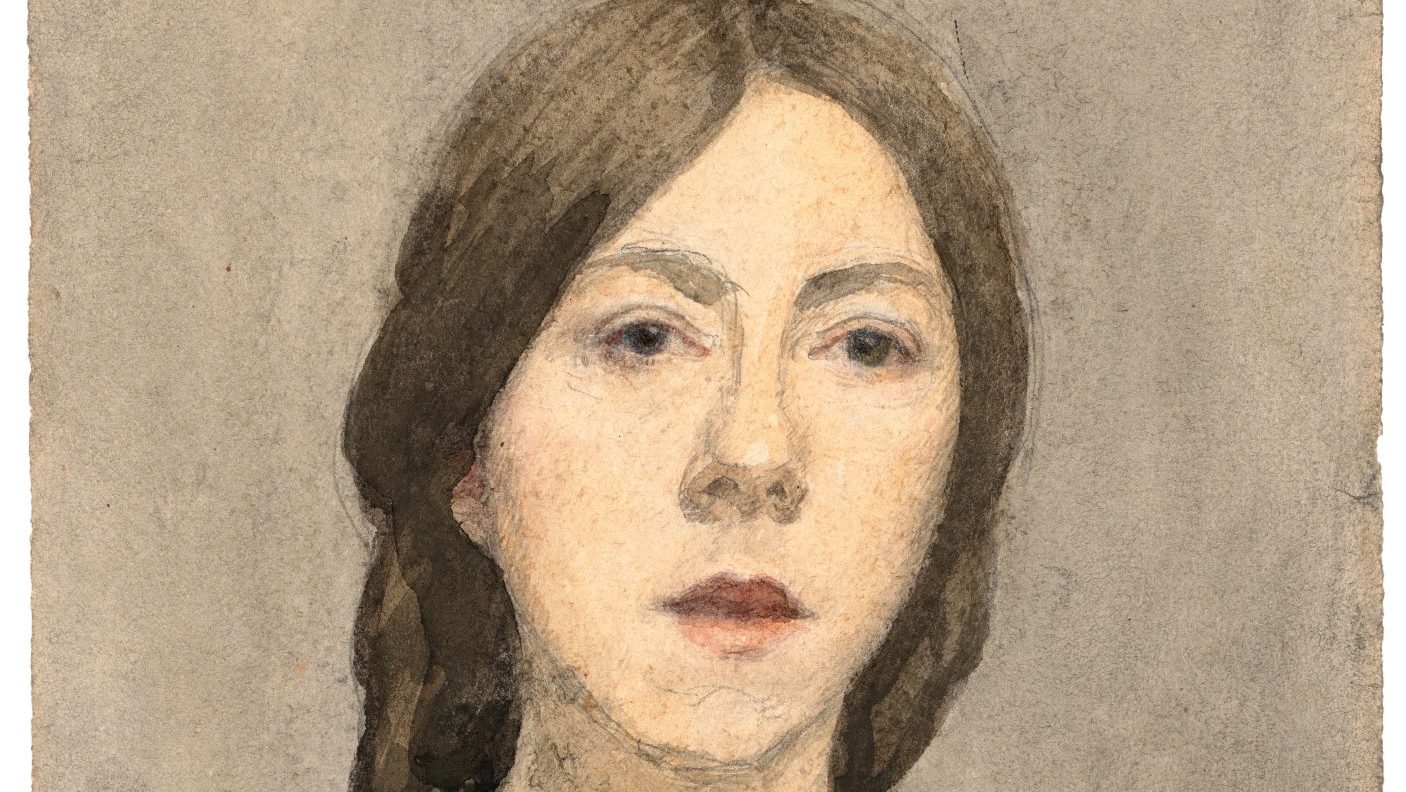When George Orwell arrived in Barcelona in the winter of 1936, he found himself in a city gripped with revolutionary fervour, the red and black flags of the Anarchists fluttering bravely wherever he looked.
He had come to volunteer in the fight against the Fascist forces of General Franco and was overjoyed to be in a city where the “working class was in the saddle”.
As he wrote so compellingly in Homage to Catalonia, his account of his part in the conflict: “If you asked me why I had joined the militia, I should have answered to fight against fascism. If you had asked me what I was fighting for, I would have answered ‘common decency’.
“There was… a feeling of having suddenly emerged into an era of equality and freedom. Human beings behaving as human beings and not as cogs in the capitalist machine… no boss class, no menial class, no beggars, no prostitutes, no lawyers, no priests, no boot licking, no cap touching.”
Today, as the crowds of tourists wander along Barcelona’s famous street, La Rambla, those who are aware of Orwell, those who know something about the Spanish civil war, might be surprised that there are very few memorials to those years of strife.
In 1936 Orwell was by no means the household name he was to become. Down and Out in Paris and London, his account of the shocking working
conditions he endured in those glamorous cities, had received slight acclaim and fewer sales. It was only after his time fighting in Spain that he was inspired to write two of the seminal books of the 20th century, Animal Farm and Nineteen Eighty-four.
But for many in Catalonia, Orwell is a key figure, an eloquent teacher about the way society, its politicians and its journalists should conduct themselves.
In that spirit, every summer the Centre de Cultura Contemporània de Barcelona (CCCB) brings together historians, writers and performers for George Orwell Day to celebrate the man, his wry account of the heroic but messy incompetence of the war on the Aragon front and his despair at the internecine struggle that tore apart the anti-Franco forces.
What makes the gathering particularly relevant is that the legacy of the civil war and the Franco dictatorship has received little formal recognition in Spain. The country never went through a process of truth and reconciliation, stories regularly emerge about graves where those who “disappeared” in the war were buried. There are no large museums that are concerned with explaining the past to new generations. There is a sense of unfinished business.
“That is certainly part of the problem,” says Barcelona historian Miquel Berga. “Grievances are still alive on either side on the evils of one side or the other. That tension surfaces in today’s politics and makes it difficult to reach the kind of healing through a policy of collective memory. There is a Law of the Memoria Histórica, which is crucial in terms of tracing the corpses of Republicans left in mass graves, but two parties of the right, the Partido Popular, and Vox (more of them later), have announced the law will be suspended the moment they win the election.
“It is very unlikely to hear a member of the Spanish right referring to the
Franco years as military dictatorship. They see themselves as democrats, but
they appear very little inclined to despise those years as a horrendous dictatorship.”
This failure of the right and left to agree on how the war should be acknowledged is one of the dilemmas debated on Orwell Day. As the CCCB
organisers explain: “We bring together specialists to talk about the ‘museum-isation’ of the civil war and its place in collective memory. We continue to acknowledge Orwell’s ongoing relevance in a world where democracy is being threatened in the digital, political, and social domains.”
In what way can Orwell be relevant to Spain today? What, for example, would he make of the politicians caught up in all the sound and fury, bile, prejudice and fake facts inevitably involved in the forthcoming general election?
Berga writes that Orwell hated the isms of his day; imperialism, fascism and Stalinism. Today, no doubt, Orwell would rail against the isms of extremism, populism and racism that characterise some of Spain’s political leaders.
The election was brought forward five months to this coming Sunday (July 23) by the prime minister, Pedro Sánchez, after his Socialist Party suffered humiliating defeats in regional and local elections in May.
He has been attacked for his alliances with far-left groups and Basque and Catalan separatists, while Inés Arrimadas, who led the liberal-minded Ciudadanos (Citizens) party until her resignation in June castigated Sánchez for destroying Spain’s political centre and obliging voters to choose between being “communists” and “fascists”.
This has opened a door for the extreme-right Vox party led by Santiago Abascal, the 43-year-old grandson of a pro-Franco mayor who employs the familiar tropes of right wing populists the world over.
He has called for the “urgent repatriation” of illegal immigrants, is “strong” on law and order, has no time for gender equality and is tub-thumpingly proud of Spain’s history, Catholic values, culture and traditions. He has promised to suspend Catalan autonomy and the outlawing of nationalist parties and, à la Donald Trump, to “make Spain great again”.

This kind of rhetoric propelled Vox to prominence as recently as 2019, when it came from virtually nowhere to become the third-strongest party in the national parliament with 52 of the 350 seats, while the other party of the right, the Partido Popular led by Alberto Feijóo, is the second-strongest with 88 seats. Opinion polls suggest that together they will see off Sánchez, especially after a TV debate last week that saw Feijóo getting the better of a faltering prime minister.
Sánchez is also under attack from the strident Isabel Ayuso, the president (mayor) of Madrid, who is arguably his most dangerous rival. A member of the conservative Partido Popular, she is a climate denier, has blamed immigrants for helping to spread Covid because of “their way of life” and has accused the Socialists of being communists who want to set fire to Catholic churches – just as anti-clerical rioters did before the civil war.
Like Trump, she is perfectly relaxed about mixing alternative facts and outright lies as legitimate political tools, and is proud to boast: “When they call you a fascist, you know you’re on the right side of history.”
In this year’s CCCB conference, the political scientist Cas Mudde dissected
the rise of right wing extremist movements in postwar Europe from wayward if dangerous outliers in the 1950s and 60s to well organised mainstream parties who have risen to prominence globally. He cited Fidesz,
the populist party led by Viktor Orbán in Hungary, the National Rally of France (formerly the National Front) and Israel’s Likud under Benjamin Netanyahu.
Like these, the success of Vox is, in part, down to the way it works within the democratic system. Mudde argued: “The extreme right is perilously penetrating into public opinion, hiding behind the banner of freedom of speech but setting up against immigration and invoking hate towards feminist movements and gender and sexual diversity.
“This is not the world-destroying fascism of our grandparents. Rather, the great threat to liberal democracies nowadays is its integration and normalisation.”
He claimed that the left and centre have long ceased to present an alternative ideology to potential voters, leaving the argument to the right, though that is being challenged by the new Sumar movement, a group of left and Green parties led by another forthright female, Yolanda Díaz, a communist and feminist who argues for a “coalition of rights, freedom and progress”.
Berga says: “I imagine Orwell would very much try to say that if the extreme right wing gets a hearing, one should oppose them by confronting their concepts and values. It will never be enough to simply oppose them by arguing that they are ‘a horrible thing to happen’, especially now that in so
many countries the extreme right has become perfectly mainstream.”
And then there is fake news, the tweeting travesty of the truth that blights so much of political discourse.
The problem was discussed by media theorist Geert Lovink, who outlined the power of the digital platforms, which instead of creating the open, decentralised internet that many hoped for have become controlled by big corporations like Google and Meta and has mutated into platforms for half-truths, trolling and lies.
Several TV channels and newspapers in Spain have adopted the abrasive example of the US TV station Fox News by openly backing the policies of the
Partido Popular and suggesting that a government based on an alliance between various left-of-centre parties is illegitimate.
Orwell would have something to say about that. As the historian Timothy Garton Ash wrote: “Orwell stood for clear, plain and honest language, sticking to the facts and seeking the truth. He hated dishonesty. He was like a sentry for morality.”
In Homage to Catalonia Orwell raged against the “orgy of lying in the newspapers” that made the situation in Spain still harder to understand,
and lamented that “future historians will have nothing to go upon except a
mass of accusations and party propaganda”.
He wrote: “In England… only two versions of the Spanish war have had any publicity… the right wing version, of Christian patriots versus Bolsheviks dripping with blood, and the left wing version, of gentlemanly Republicans quelling a military revolt.”
He had considerable contempt for the way the Daily Mail “amid the cheers of the Catholic clergy was able to present Franco as a patriot delivering his country from hordes of fiendish Reds”, and wrote that it would never be possible “to get a completely accurate and unbiased account of the Barcelona fighting because the records do not exist”.
Furthermore, he warned: “Beware of my partisanship, my mistakes of fact and the distortion inevitably caused by my having seen only one corner of events. And beware the same things when you read any other book on the Spanish war.”
Imagine a journalist admitting to getting a fact wrong today.
The conference traditionally ends with a walk through Orwell’s Barcelona: the Continental Hotel on La Rambla, where his wife, Eileen, waited for him when he was off fighting; the Café Moka, which the Anarchists used as a headquarters; and across the street the Poliorama Theatre, where Orwell kept watch on the fighting below from the observatory on the roof.
The tour stops at the Plaza George Orwell. It was here that the first surveillance camera in the city was set up several years ago. Big Brother has
been watching ever since.
Orwell would acknowledge the irony, but would probably prefer his audience to recall the words from Big Brother’s daily diktat to the huddled masses in Nineteen Eighty-four:
War is Peace
Freedom is Slavery
Ignorance is Strength.
Doublespeak. Doublethink. Part of Orwell’s legacy, says Berga, is that a reader of his work can “easily detect people who are skilled at saying A or B depending on the circumstances, slogans or convenience.
“He is a reference point that makes people more resistant to totalitarian temptations of power – right, left or centre.
“His generous struggle has made us warier of the mechanisms of international control over individual freedom and taught us to be attentive to political operations which… are permanently devoted to rewriting the past to suit their own convenience.”




